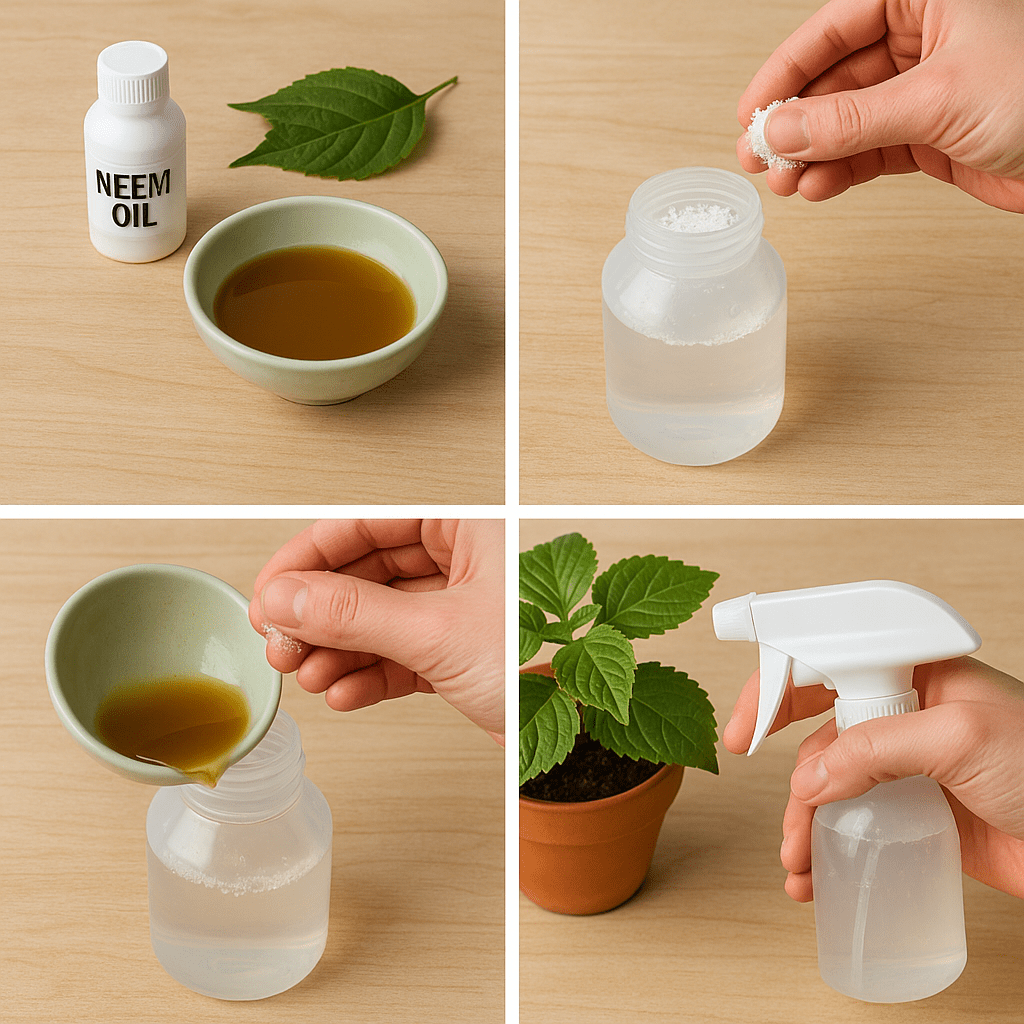Dealing with pests in your garden can be frustrating, especially when harsh chemicals threaten to damage your plants. Fortunately, there are safe, natural methods to control pests while preserving the health of your greenery. In this guide, you’ll discover the top 10 pest control methods that are safe for plants, using easy, practical solutions you can implement today.
Why Choose Plant-Safe Pest Control?
Chemical pesticides can be effective, but they often come with unwanted side effects—burnt leaves, weakened roots, and contamination of the soil. Plant-safe pest control focuses on protecting your crops and ornamentals without disrupting the natural ecosystem. These methods are ideal for home gardeners, families with pets, and anyone interested in organic gardening.
1. Neem Oil Spray
Neem oil is derived from the seeds of the neem tree and works as a natural insecticide.
How to Use:
- Mix 1–2 tablespoons of neem oil with a gallon of water and a few drops of dish soap.
- Spray on leaves, especially the undersides where pests like to hide.
- Repeat every 7–10 days for best results.
Target Pests:
Aphids, spider mites, whiteflies, mealybugs.
2. Diatomaceous Earth
This fine powder is made from fossilized algae and causes dehydration in insects.
How to Use:
- Dust a thin layer on the soil surface and plant leaves.
- Reapply after watering or rain.
Safe For:
Vegetables, herbs, flowers, and houseplants.
3. Beneficial Insects
Encourage or introduce natural predators that feed on harmful pests.
Examples:
- Ladybugs eat aphids.
- Lacewings target thrips.
- Parasitic wasps control caterpillars.
You can attract these insects by planting dill, yarrow, and fennel.
4. Garlic Spray
Garlic has antifungal and insect-repelling properties.
How to Make:
- Blend 2 bulbs of garlic with 1 quart of water.
- Let it sit overnight, strain, and dilute with a gallon of water.
- Spray weekly.
Effective Against:
Aphids, beetles, and caterpillars.
5. Soap and Water Solution
A simple mix of mild soap and water suffocates soft-bodied insects.
How to Use:
- Mix 1 teaspoon of dish soap in a quart of water.
- Spray directly on affected plants.
- Use in the early morning or evening to avoid sunburn.
6. Row Covers
Physical barriers like row covers prevent insects from reaching your crops.
How to Use:
- Drape lightweight mesh over plants.
- Secure the edges with soil or garden staples.
- Remove during flowering to allow pollination.
7. Companion Planting
Certain plant pairings deter insects naturally.
Examples:
- Marigolds repel nematodes and aphids.
- Basil keeps mosquitoes and flies away from tomatoes.
- Nasturtiums attract aphids away from other plants.
8. Sticky Traps
Sticky cards can capture flying insects like whiteflies and fungus gnats.
How to Use:
- Place yellow or blue sticky cards near plants.
- Check and replace weekly.
Tip:
Use indoors or in greenhouses for maximum effect.
9. Coffee Grounds
Used coffee grounds repel ants, snails, and slugs.
How to Use:
- Scatter grounds around the base of plants.
- Mix into compost or soil for added benefit.
10. Alcohol Spray
Isopropyl alcohol can kill pests on contact without harming most plants.
How to Use:
- Mix 1 part alcohol with 5 parts water.
- Test on a small area first.
- Spray directly on pests.

Final Thoughts and Safety Tips
Always test new sprays on a small leaf area to ensure there’s no adverse reaction. Avoid spraying during hot or sunny times of the day. Even natural remedies can cause damage if overapplied.
If you’re noticing yellowing leaves on your indoor plants, don’t miss this helpful guide: Why Your Houseplant Has Yellow Leaves and How to Fix It.
Conclusion
Keeping your plants pest-free doesn’t require toxic chemicals. With these top 10 pest control methods that are safe for plants, you can protect your garden naturally and sustainably.
Share this article with a friend who’s starting their own garden—and help them grow healthy, vibrant plants without fear of chemical harm!
Frequently Asked Questions (FAQ)
What is the safest pest control for vegetable gardens?
Neem oil, garlic spray, and diatomaceous earth are all safe and effective for use on vegetables.
Can I use these methods indoors?
Yes. Methods like sticky traps, neem oil, and soap sprays are perfect for houseplants.
How often should I apply these pest control methods?
Most natural treatments should be reapplied every 7–10 days or after rain.
To get started with safe pest control, you can purchase organic neem oil from trusted suppliers like Gardener’s Supply Company.
Written by Kate Smith | Plant Care Enthusiast & Urban Gardener
